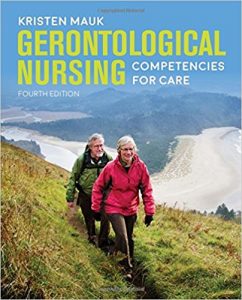Guest Blog: Places to Visit in Dubai for Senior Citizens
Introduction
If you are a senior citizen, then you must know that Dubai is the perfect place to visit. This is one of the most popular tourist destinations in the world and has everything you need to have an amazing time. Not only is it filled with beautiful buildings and attractions, but it also has great weather all year round and you can get discount tickets for Dubai attractions! You’ll never run out of things to do here in Dubai; there are plenty of museums, restaurants, hotels and malls to explore when visiting this amazing city!
Burj Al Arab
The Burj Al Arab is located in Dubai, United Arab Emirates. To get there, you can take a taxi or drive yourself.
The hotel has 730 rooms and suites, all of which are decorated with opulence and luxury in mind. The hotel is also known for its 5-star restaurants that serve traditional Arabic cuisine as well as international dishes such as steak tartare or duck confit salad. Other facilities include a spa offering facials and massages; an indoor swimming pool; an outdoor tennis court; a gymnasium with personal trainers on hand to assist guests who wish it; underground parking space for cars (or other vehicles); room service available 24 hours per day; free Wi-Fi throughout the entire building–and much more!
Dubai Festival City Mall
Dubai Festival City Mall is a great place to visit if you’re looking for something that has it all. It has a number of restaurants, cafes and shops, as well as cinema, bowling alley and roller skating rink. There’s also an indoor play area for children called Kidzania where kids can work in different professions such as doctor or chef.
The Dubai Mall
The Dubai Mall is one of the most popular places to visit in Dubai. It’s located at the heart of Downtown Dubai, which makes it easy to get there by public transport.
The mall has more than 1,200 stores that offer everything from clothing and jewelry to cosmetics and electronics. It also has a variety of dining options including food courts, fine dining restaurants and cafés. There are also plenty of entertainment options including an ice rink where you can skate during winter months (December through February). If you’re feeling adventurous try out one of their roller coasters or go on one of their rides like “The Falcon”. The mall also hosts events throughout the year such as concerts by international artists so check out their website for more details!
Sharaf DG Mall
Sharaf DG Mall is located in Al Quoz and is a popular destination for senior citizens. The mall has a wide range of shops and restaurants, as well as an ice skating rink, laser tag arena and bowling alley.
The mall stays open 24 hours a day, seven days a week so there’s no need to worry about your elderly parents getting bored or hungry while they’re there! It also has plenty of space for them to sit down if they want to rest their legs after walking around all day long (or even just popping out quickly).
There’s an underground car park at the back of the building which makes it easy for you or other family members who may be with them when visiting this beautiful place 🙂
The Wild Wadi Water Park
The Wild Wadi Water Park is the perfect place for families and friends to spend a day. There are so many slides and rides that everyone in your group will find something they enjoy. The park also has food and drinks available, so you can keep your energy up while you’re having fun!
The park is open from 9am-6pm daily (except Fridays), though it does get busy at weekends so it’s worth booking tickets online if possible. Entry costs AED120 for adults and AED90 for children ages three-12 years old.
These are some of the places you can visit with your senior citizen relative.
There are many places to visit in Dubai, and you should take your senior citizen relative to them. You can also do other activities, like go shopping or eat at a restaurant. Some good places to stay are the Burj Al Arab Hotel, which has a very nice pool with dolphins; the Jumeriah Beach Hotel (it has a great view of the ocean), or even just staying at home!
Conclusion
We hope that this list has inspired you to visit some of the best places in Dubai for senior citizens. If you have any other suggestions, please let us know!
Daycare’s 5 Fun Online Activities for Seniors
 As a person ages, it’s important for them to maintain a healthy routine of regular social engagement as well as physical and cognitive exercise.
As a person ages, it’s important for them to maintain a healthy routine of regular social engagement as well as physical and cognitive exercise.
There is a myriad of activities that a senior loved one can do to achieve these outcomes. From reading newspapers and playing card games to visiting friends and family and even going out for walks.
But what can seniors do during days when they can’t or don’t want to leave the house?
Below we’ve gathered a list of five (5) fun online activities for seniors. Read on to learn more!
Safe Online Usage
Before we move on to discuss the five fun online activities seniors can participate in, let’s first talk about how seniors can stay safe online.
Seniors are one of the most vulnerable age groups when it comes to online scams. It’s important to practice precautionary measures to keep loved ones safe while they explore the online world.
Families could get caregiving services that can provide their elderly loved ones with assistance during online activities. Caregivers are skilled and equipped to assist seniors in their day-to-day activities in an attempt to make things easier and safer for them.
A few other things family members can do to help keep their seniors safe online are:
- Warn your loved ones not to give out personal or sensitive information to anyone online
- Teach loved ones how to identify the SSL or “secure” symbol on websites and address bars
- Remind loved ones never to click on pop-up advertisements on websites and emails
You can write all these on a notepad or sticky note so your senior loved ones can easily look at out whenever they need to be reminded.
Fun Online Activities for Seniors
Senior Exercise Classes
Since seniors are more susceptible to contracting COVID-19 than any other age group, it’s important for them to lessen their exposure to others. This has led them to spend more time at home where there is a lesser chance for them to get enough exercise and stimulation.
As a response to the growing need for physical activity and exercise in seniors, plenty of fitness studios and gyms have started offering exercise classes online.
You can find a variety of workouts for seniors to try online. From Yoga and Pilates to Tai Chi and even dancing.
Ask your loved one about the workouts he/she prefers and help them find a reliable site online to start exercising!
Online Games
It may be hard to believe, but a lot of older adults actually enjoy playing online games. There are plenty of free options that can provide seniors with intellectual stimulation to prevent cognitive decline and improve memory!
Choose among a variety of household favorites, such as word search, mahjong, solitaire, crossword puzzles, checkers, and chess.
Some websites may even allow you to play together with friends and family members! The AARP has a collection of online group games and activities that seniors can enjoy when they sign up for a membership. You can check out their game roster here.
Learn and Improve Skincare Techniques
Older adults have very specific skincare requirements. This is due to the fact that senior skin is often thinner and drier, making it more sensitive to cracking and dermatitis. Both conditions can make senior skin more vulnerable to bacterial infections.
There is a myriad of effective natural skincare techniques that seniors can try out online. These techniques can help promote better skin health and protect loved ones from harmful and life-threatening infections.
Adult Daycare
The term adult daycare is often seen in a not-so-positive light among older adults. That’s because the term “daycare” is often linked to programs designed for toddlers or younger children. However, that isn’t the case with adult daycare.
Online adult day programs are designed to help older adults explore their interests in a variety of studies and industries. It also helps them develop new skills and improve cognitive and physical health.
For example, some adult daycares may provide online arts and crafts classes for older adults who are more creative with their hands. They may also offer virtual museum tours, exercise classes, music classes, and many more!
Blogging
Does your loved one have a skill or talent that they are passionate about? Perhaps they are experts at a certain topic, like marketing or advertising?
While blogging might be seen as something only the “youngsters” can do, older adults can also get a ton of benefits from the activity. Not only is it a way to make money on the side, but blogging can also act as a medium for older adults to share and communicate their thoughts, opinions, and teachings to an entire audience.
Seniors can write about practically anything, from how to plant vegetables in your garden the right way to self-help-type articles to help youngsters find a little more balance in the world.
There are plenty of blogs out there that accept senior guest writers to write for their blogs. You can find a couple of great places here on Wowitloveithaveit.com.
The Bottom Line
Age shouldn’t be a reason for a person to quit on their hopes and dreams. Encourage your loved ones to try new things every day. You never know, they might just be the next Julia Child or Stan Lee!
Amputation
Background
Amputation is an acquired condition that results in the loss of a limb, typically from disease, injury, and/or surgery. There are approximately 278,000 new amputees each year in the United States (Amputation statistics, 2012). Seventy-seven percent of these cases are from circulatory problems, particularly peripheral vascular disease (PVD) related to diabetes, while most of the rest are due to trauma.
Warning Signs
Most amputations involve the lower limbs, above or below the knee. The greatest risk factor for amputation is diabetes with peripheral vascular disease, with African American men having a 2.3 times greater rate of amputation than Whites with diabetes. Advanced age and the incidence of diabetes in the elderly make this a potential problem in the older age group. Additionally, a recent study showed that HgbA1c level was a significant predictor of foot amputation (Palmer, et al,et al., 2011).
Diagnosis
In the acute phase of recovery after surgery, it is important to prevent contractures of the knee joint and maintain normal muscle power and range of motion in remaining joints. The limb should not be hung over the bedside or placed in a dependent position. Both in acute care and rehabilitation, the stump should be conditioned to prepare for the wearing of a prosthesis (an artificial limb). In certain cases, an older person may choose, after speaking with the doctor, not to wear a prosthesis. But, this is usually only when there are other health problems, such as poor balance from another disease or disorder that would make falling and injury more likely with the use of an artificial limb.
Treatment
Initially, there may be drainage from the surgical site, and a sterile dressing will be kept in place and changed at least daily. Eventually, the staples or sutures will be removed and a thick, black eschar (like a hard, dark scab) will form at the amputation site and gradually come off. An Ace wrap or stump shrinker sock (elastic) is used to help prepare the stump for wearing a prosthesis. Several factors should be considered when preparing the stump to wear this artificial limb. These include a movable scar, lack of tenderness/sensitivity, a cone shape, firm skin, and minimizing any swelling. All of these can be achieved by proper wrapping of the stump. The prone position (laying on the stomach), if tolerable, is an excellent way to promote full extension of the residual limb.
It is also important for the person to begin therapy right away. Persons wearing a prosthesis use more energy to walk. An older person with an artificial leg generally has a 40% decrease in speed but uses 80% more energy to walk than the average healthy adult (Chinn et al, 2005).
When using the prosthesis at first, an older adult may tire easily. Be sure to take into account any coexisting problems, such as heart of lung disease, when considering energy expenditure. However, the newest technologies allow prosthetics to be light, durable, and more comfortable.
Patients and families will need to learn about stump care, mobility, adaptation, coping, and self-care. Home maintenance, dealing with complications and/or additional health problems, wear and tear on non-weight-bearing joints, adapting to the environment, accessibility, stigma, depression, role changes, decreased energy, and chronic pain are all issues to be aware of related to amputation. It is likely that the person with a leg amputation will experience some shoulder problems over time due to the additional stress on the non-weight-bearing joints. Phantom limb pain, or pain sensations in the nonexistent limb, is more common after traumatic amputations and may last for weeks after amputation. Massage and medications may help with this type of pain control (Beers, 2005). Additionally, proper wrapping of the stump (in a figure-eight wrap) may help decrease the chance of phantom limb pain later (Kalapatapu, 2012). Also, people with an amputation may struggle with difficult feelings about the changed appearance of their body. They might worry if their spouse or loved ones will see them differently. They might fear what others will think and worry about getting their life back to what feels normal.
In general, older persons with amputation may return to a normal quality of life with some adaptations. The care provided by nurses and physicians in rehabilitation after amputation may make the difference in the person’s ability to cope with the changes that result after surgery. Nurses can help with the transition back into the community after amputation by educating patients and families about resources to assist with adaptation.
Adapted from Mauk, K. L., Hanson, P., & Hain, D. (2014). Review of the management of common illnesses, diseases, or health conditions. In K. L. Mauk’s (Ed.) Gerontological Nursing: Competencies for Care. Sudbury, MA: Jones and Bartlett Publishers. Used with permission.
[call_to_action title=”For More Information Visit” tag_line=”Amputee Coalition” arrow=”yes”]
http://www.amputee-coalition.org/
Download this care page as a PDF: Amputationkme
[/call_to_action]
How to Find the Best Healthcare for Assisted Living
In the world of healthcare, the quality of assisted living can vary in any given location. That’s why it’s critical you do the correct homework while implementing strategies to find out the situation. There will be some potentially shocking things discovered along the way when you notice the differences between facilities. Many do not offer you the optimal care you deserve, but the price tag is also a variable. Generally, more expensive locations will have more accommodations and higher-level care.
Choosing Based on a Good Location
You might be wondering, “where can I find an assisted living near me?” Well, there are many viable locations to start exploring right now. It’s better to view this as an important journey rather than an arduous chore. Things can get challenging when it comes to making the final decision. Location is incredibly important because you want them to feel safe. According to Diamond Willow, they have a service that “covers a wide range of communities as Minnesota’s premier senior care provider, specializing in unmatched memory care and assisted living services.” They are giving you a wider range of options to make effective assisted living healthcare more convenient and accessible.
Use a Comprehensive Assisted Living Directory
One of the ways to get acquainted with the options in your area is through consulting with a directory. Here, you will discover some interesting options and can view the important details without even visiting. From there, you can compare and contrast which ones would be more suitable for your loved one. These directories have valuable information about living conditions and perks that come with each facility. You may also learn about the history of any given building and details like the age and qualifications. These are especially important if you have someone who needs intensive care and constant monitoring. Assisted living directories make the process of finding stable and safe healthcare opportunities more manageable.
Consult with Your Healthcare Provider
There are many tips to find assisted living facilities that will serve as a guide towards a successful decision. If you’re worried about regretting any given decision, then it would be a wise idea to consult with your healthcare practitioner to shed light on the subject. They will be well-acquainted with the dynamics of many local facilities because of their job working with people. This can be a significant advantage for discovering certain realities that you wouldn’t have discovered otherwise. For instance, if a facility has behavioral issues or problems with crime in a bad area then the doctor will know this. They will also be able to tailor your decision based on your personal medical history with better results!
Ask Friends and Family about their Experience
Another great way to gain insight into any assisted living facility is to speak with others who have gone through the experience themselves. One of the advantages of this is you’ll get transparent honesty from a friend or family member who experienced the current staff. This can be a variable that people often overlook when searching for good spots, and patient satisfaction is important. Reviews can also be found online which may enlighten you as to whether or not a care facility treats their elderly folks well. They can give you critical details about their experience and you can decide if certain elements are deal-breakers. Taking notes when they describe their experience is good for comparing spots later. Also, when someone speaks about their assisted living stories you’ll be able to get the general vibe which is better than reading reviews. Simply reach out and ask people about their time and see how you feel later when you deliberate.
Doing the Right Research Will Pay Off
It is possible to establish a good middle-ground without emptying your wallet in search of an assisted living location. When conducting your own research you must keep your budget in mind along with the smaller details of each location. It’s imperative you communicate effectively with the individual to ensure their needs are fully met across different atmospheres. The new spot should feel like home in a safe location that is accessible to the family. This helps because it’s easier to visit!
Shingles (Herpes Zoster)
Commonly known as shingles, herpes zoster is the reactivation of the varicella virus that causes chicken pox. Older persons may be infected with this latent virus after initial exposure to it in the form of chicken pox. The virus then lays dormant in the neurons until it is reactivated, often due to immunosuppression, when it appears in the form of painful vesicles or blisters along the sensory nerves. This reactivation tends to occur once in a lifetime, with repeat attacks occurring about 5% of the time (Flossos & Kostakou, 2006). Herpes zoster occurs in both men and women equally, with no specific ethnic variations, but is more common in the elderly.
Risk Factors
Risk factors for developing shingles are age over 55 years, stress, and a suppressed immune system. For many older women particularly, emotional or psychological stress can trigger recurrence.
Warning Signs
Signs and symptoms of herpes zoster include painful lesions that erupt on the sensory nerve path, usually beginning on the chest or face. They may appear as initially as a rash, looking much like chicken pox, often wrapping around the chest area in a band-like cluster. These weepy vesicles get pustular and crusty over several days, with healing occurring in 2-5 weeks (Kennedy-Malone et al., 2004; NINDS, 2013).
Diagnosis
Diagnosis is usually made by viewing the appearance of the lesions and a history of onset. A scraping will confirm some type of herpes virus. The most common complaint of those with herpes zoster is the painful blisters that usually subside in 3–5 weeks (NINDS, 2013). Postherpetic neuralgia, a complication of herpes zoster, may last 6–12 months after the lesions disappear and may involve the dermatome, thermal sensory deficits, allodynia (the perception of pain where pain should not be), and/or severe sensory loss, all of which can be very distressing for the patient (Flossos & Kostakou, 2006).
Prevention
Zostavax, a vaccine for shingles, has become available, and it is recommended for all persons age 60 or older who have already had the chicken pox. A person can still get shingles even after having the vaccine, but the symptoms and complications would be less severe. The vaccine has also been approved for persons age 50 – 59, and research has shown that receiving the vaccine significantly decreases the rate of shingles in the population (NINDS, 2013; PubMed Health 2012).
Treatment
Antiviral medications (such as Acyclovir) are used to treat shingles, but must be given within 48 hours of the eruption of the lesions. Topical ointments may help with pain and itching. Pain medications, particularly acetaminophen (Tylenol), are appropriate for pain management in older adults. If a fever is present, rest and drinking plenty of fluids is suggested. Persons with pain that lasts past 6 weeks after the skin lesions are gone and that is described as sharp, burning, or constant require re-evaluation by a physician. Postherpetic neuralgia may be a long-term complication lasting years (PubMed Health, 2012).
The person should be advised to seek medical attention as soon as he or she suspects shingles, in order to receive the best results from Acyclovir. The virus will run its course, but the person is contagious while vesicles are weepy. Persons should not have direct contact (even clothing) with pregnant women, people who have not had chicken pox, other elderly persons, or those with suppressed immune systems. The older person with shingles may experience concerns with pain management and feel a sense of isolation, particularly if they live alone. Arranging for a family member or friend who does not have a high risk of infection to check on the older person at home is advisable.
Adapted from Mauk, K. L., Hanson, P., & Hain, D. (2014). Review of the management of common illnesses, diseases, or health conditions. In K. L. Mauk’s (Ed.) Gerontological Nursing: Competencies for Care. Sudbury, MA: Jones and Bartlett Publishers. Used with permission.




